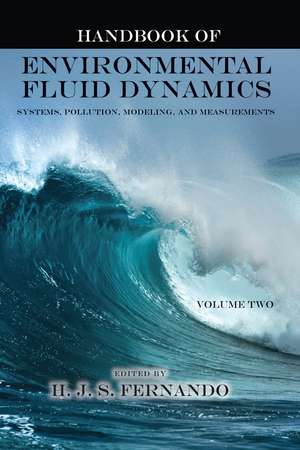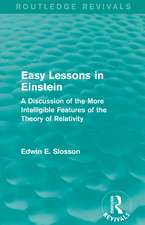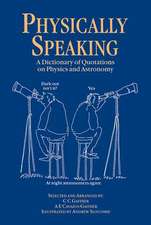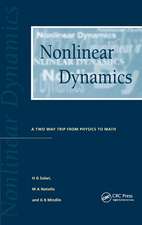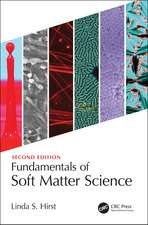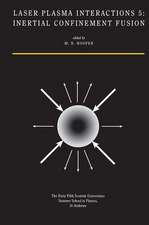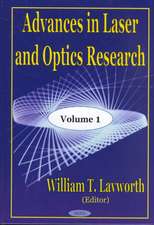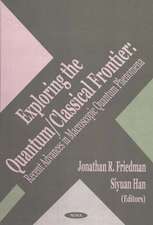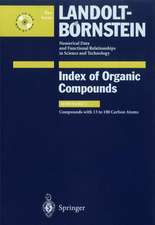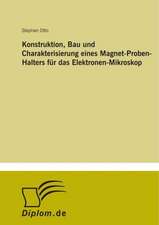Handbook of Environmental Fluid Dynamics, Volume Two: Systems, Pollution, Modeling, and Measurements
Editat de Harindra Joseph Fernandoen Limba Engleză Paperback – 21 noi 2018
The handbook features 81 chapters written by 135 renowned researchers from around the world. Covering environmental, policy, biological, and chemical aspects, it tackles important cross-disciplinary topics such as sustainability, ecology, pollution, micrometeorology, and limnology.
Volume Two: Systems, Pollution, Modeling, and Measurements explores the interactions between engineered structures and anthropogenic activities that affect natural flows, with particular emphasis on environmental pollution. The book covers the numerical methodologies that underpin research, predictive modeling, and cyber-infrastructure developments. It also addresses practical aspects of laboratory experiments and field observations that validate quantitative predictions and help identify new phenomena and processes.
As communities face existential challenges posed by climate change, rapid urbanization, and scarcity of water and energy, the study of environmental fluid dynamics becomes increasingly relevant. This volume is a valuable resource for students, researchers, and policymakers working to better understand environmental motions and how they affect and are influenced by anthropogenic activities.
See also Handbook of Environmental Fluid Dynamics, Two-Volume Set and Volume One: Overview and Fundamentals.
Preț: 370.25 lei
Preț vechi: 477.21 lei
-22% Nou
Puncte Express: 555
Preț estimativ în valută:
70.87€ • 77.01$ • 59.57£
70.87€ • 77.01$ • 59.57£
Carte tipărită la comandă
Livrare economică 21 aprilie-05 mai
Preluare comenzi: 021 569.72.76
Specificații
ISBN-13: 9781138374744
ISBN-10: 1138374741
Pagini: 587
Ilustrații: 364
Dimensiuni: 210 x 280 mm
Greutate: 0.45 kg
Ediția:1
Editura: CRC Press
Colecția CRC Press
ISBN-10: 1138374741
Pagini: 587
Ilustrații: 364
Dimensiuni: 210 x 280 mm
Greutate: 0.45 kg
Ediția:1
Editura: CRC Press
Colecția CRC Press
Cuprins
Part I Engineered Systems and Anthropogenic Influence: Water Distribution Systems. Groundwater–Surface Water Discharges. Fluid Mechanics of Agricultural Systems. Desalination and the Environment. Bubble Plumes. Scour around Hydraulic Structures. Flow through Urban Canopies. Flow through Buildings. Bluff Body Aerodynamics and Aeroelasticity. Wake–Structure Interactions. Urban Heat Islands. Part II Environmental Pollution: Atmospheric Dispersion. Flow and Dispersion in Street Canyons. Air Flow through Tunnels. Sound Outdoors and Noise Pollution. Riverine Transport, Mixing, and Dispersion. Ocean Outfalls. Modeling Oil Spills to Mitigate Coastal Pollution. Miscible and Immiscible Pollutants in Subsurface Systems. Part III Numerical Modeling of Environmental Flows: Turbulent Flow Modeling. Direct and Large Eddy Simulation of Environmental Flows. Multiscale Nesting and High Performance Computing. Multiscale Representations. Dispersion Modeling. Modeling the Urban Boundary and Canopy Layers. Air Pollution Modeling and Its Applications. Mathematical Models to Improve Performance of Surface Irrigation Systems. Cyberinfrastructure and Community Environmental Modeling. Uncertainty in Environmental NWP Modeling. Part IV Laboratory Modeling of Environmental Flows: Physical Modeling of Hydraulics and Sediment Transport. Laboratory Modeling. General Laboratory Techniques. Hot-Wire Anemometry in Turbulence Research. Optical Methods and Unconventional Experimental Setups in Turbulence Research. Part V Environmental Measurements: Hydrophysical Measurements in Natural Waters. Flow Measurements in the Atmosphere. Atmospheric Flux Measurements. Clear-Air Radar Profiling of Wind and Turbulence in the Lower Atmosphere. Index.
Notă biografică
Harindra Joseph Shermal Fernando is the Wayne and Diana Murdy Endowed Professor of Engineering and Geosciences at the University of Notre Dame, with the primary affiliation in the Department of Civil and Environmental Engineering and Earth Sciences and a concurrent appointment in the Department of Aerospace and Mechanical Engineering. He has received numerous awards and honors, including a UNESCO Team Gold Medal (1979), Presidential Young Investigator Award (NSF, 1986), and Rieger Foundation Distinguished Scholar Award in Environmental Sciences (2001). He is a fellow of the American Society of Mechanical Engineers, American Physical Society, and American Meteorological Society and was elected to the European Academy in 2009. He serves on the editorial boards of Applied Mechanics Reviews (associate editor), Theoretical and Computational Fluid Dynamics (editor, 1997–), IAHR Journal of Hydro-Environment (associate editor), Physics of Fluids (associate editor) and EGS Journal of Non-Linear Processes in Geophysics (editor). He is also the editor in chief of the Journal of Environmental Fluid Dynamics. Professor Fernando has published more than 225 papers spanning nearly 50 international peer-reviewed journals.
Recenzii
Praise for the Two-Volume Set
"I strongly recommend the two-volume Handbook of Environmental Fluid Dynamics to all scientists and engineers involved in or just intrigued by the interplay of fluid dynamics with the environment. Guided by the skillful editorship of Joe Fernando, and dedicated to the memory of Owen M. Phillips, a marvelous teacher and one of the top geophysical fluid dynamicists of the past century, every topic of importance in environmental fluid dynamics is superbly addressed by an outstanding selection of authors; I predict the books will be an important resource for years to come."
—Professor James J. Riley, University of Washington
"This handbook is probably the most prestigious and broadest survey in environmental fluid dynamics that has come to light so far. It brings together state-of-the-art knowledge of leading experts in topics ranging from climate change and risk assessment to more fundamental subjects such as turbulence and dispersion within two volumes and 81 chapters. It promises to become one of the most important references in this field."
—Professor Jan-Bert Flór, Laboratoire des Ecoulements Géophysiques et Industriels, CNRS
"Dr. Fernando has assembled an impressive team of contributors from a wide range of fields. The book is as close to a comprehensive view of the field as possible in one handbook."
—Professor John S. Gulliver, University of Minnesota
"This grand two-volume set provides an excellent exposé of the vast interdisciplinary field of environmental fluid dynamics including its societal importance. The work spans time and space scales ranging from small-scale stratified turbulence to large-scale climate and introduces the reader to the many observational, theoretical, and numerical techniques used to study outdoor flows—a great resource."
—Dr. Peter Sullivan, National Center for Atmospheric Research
"I will definitely recommend this handbook to students and stakeholders concerned by environmental problems."
—Professor Philippe Fraunié, Université du Sud Toulon-Var
"I strongly recommend the two-volume Handbook of Environmental Fluid Dynamics to all scientists and engineers involved in or just intrigued by the interplay of fluid dynamics with the environment. Guided by the skillful editorship of Joe Fernando, and dedicated to the memory of Owen M. Phillips, a marvelous teacher and one of the top geophysical fluid dynamicists of the past century, every topic of importance in environmental fluid dynamics is superbly addressed by an outstanding selection of authors; I predict the books will be an important resource for years to come."
—Professor James J. Riley, University of Washington
"This handbook is probably the most prestigious and broadest survey in environmental fluid dynamics that has come to light so far. It brings together state-of-the-art knowledge of leading experts in topics ranging from climate change and risk assessment to more fundamental subjects such as turbulence and dispersion within two volumes and 81 chapters. It promises to become one of the most important references in this field."
—Professor Jan-Bert Flór, Laboratoire des Ecoulements Géophysiques et Industriels, CNRS
"Dr. Fernando has assembled an impressive team of contributors from a wide range of fields. The book is as close to a comprehensive view of the field as possible in one handbook."
—Professor John S. Gulliver, University of Minnesota
"This grand two-volume set provides an excellent exposé of the vast interdisciplinary field of environmental fluid dynamics including its societal importance. The work spans time and space scales ranging from small-scale stratified turbulence to large-scale climate and introduces the reader to the many observational, theoretical, and numerical techniques used to study outdoor flows—a great resource."
—Dr. Peter Sullivan, National Center for Atmospheric Research
"I will definitely recommend this handbook to students and stakeholders concerned by environmental problems."
—Professor Philippe Fraunié, Université du Sud Toulon-Var
Descriere
The Handbook of Environmental Fluid Dynamics presents the basic principles, fundamental flow processes, modeling techniques, and measurement methods used in the field, along with critical discussions of environmental sustainability related to engineering. This second volume covers the interactions between engineered structures and natural flows as well as the major topic of environmental pollution, with a focus on numerical methods, predictive modeling, and computer infrastructure developments. The book also looks at practical aspects of laboratory experiments and field observations that validate quantitative predictions and help identify new phenomena and processes.
